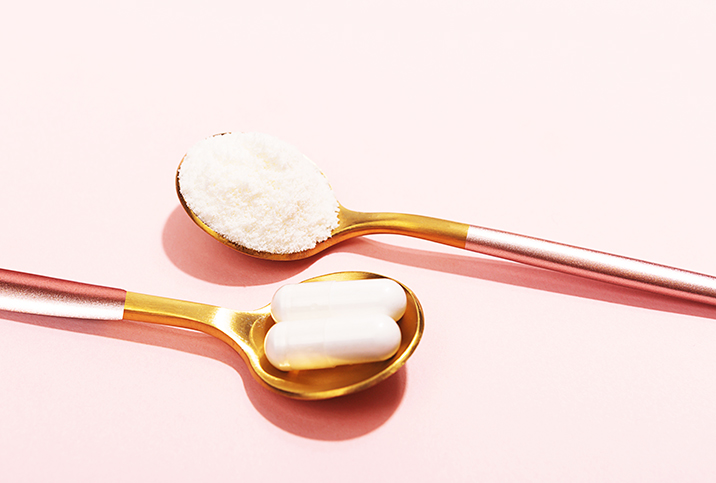Could Red Meat Be Hurting Your Erectile Performance?
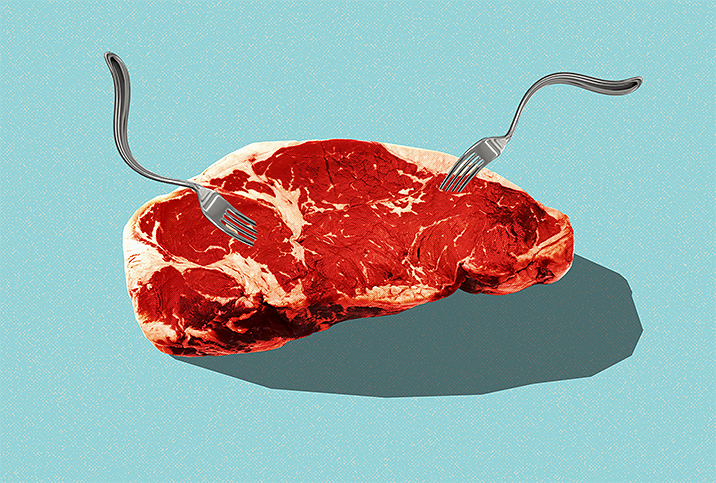
From burgers and Texas-sized steaks to Sunday night pot roasts, America has had a long and torrid love affair with red meat—a relationship perhaps best encapsulated by the illustrious ad slogan, "Beef. It's What's for Dinner."
But in recent years, that relationship has become strained. While the market for meat is still alive and well—U.S. meat sales totaled $82.5 billion in 2020—annual per capita consumption of red meat has decreased from 149.6 pounds in 1971 to an estimated 110.5 in 2021. Today, 34 percent of shoppers say they're trying to cut back on meat in their diets, primarily due to health concerns.
And it's not without good reason. Excessive red meat consumption has been associated with colon, prostate and pancreatic cancers, heart disease and even early death. So is it possible that it could be contributing to erectile dysfunction (ED), too?
Looking at the facts
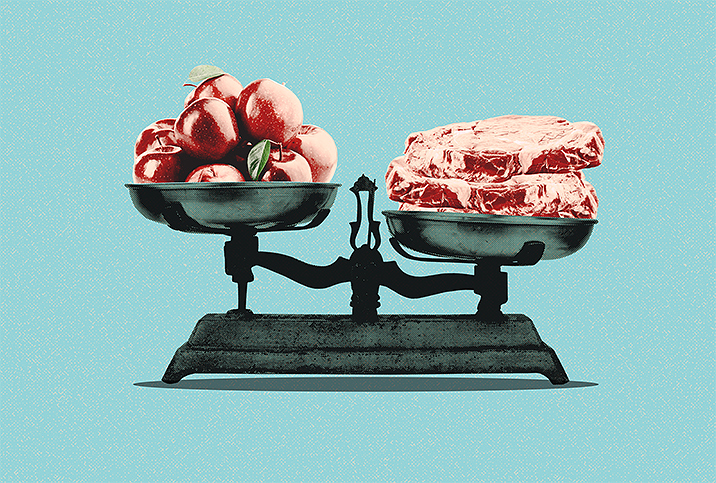
A handful of different studies have suggested a correlation between red meat and erection trouble. A 2010 study published in the Journal of Sexual Medicine, a 2020 study in the Journal of the American Medical Association Network Open and a 2006 study in the International Journal of Impotence Research all found that a diet rich in vegetables, fruits, whole grains and fish but low in red and processed meats was associated with better erectile performance. You've likely heard this called the Mediterranean diet.
Red meat has also been linked to certain health problems, such as high blood pressure, heart disease, diabetes, obesity and clogged arteries, that are frequently associated with erectile dysfunction, thanks to high levels of saturated fat and carnitine, which your gut bacteria turn into a harmful compound called trimethylamine N-oxide (TMAO).
But it's not quite enough to conclude that excessive red meat alone kills your erections.
"Eating red meat per se doesn't cause an increase [in ED] when we take a step back and look at the total picture," said Angel Planells, a Seattle-based registered dietitian nutritionist (RDN) and spokesperson for the Academy of Nutrition and Dietetics.
"I wouldn't point the finger specifically at red meat if you're having problems in the bedroom," agreed Annie Bell, a San Antonio–based RDN with more than 20 years of experience who has served as a consultant for corporations, academic institutions and public health centers. "It's unlikely that a single food would be the culprit in a disorder as complicated as ED, which can involve many different body systems."
Jana Mowrer, an RDN who owns HealthWins, a nutritional consulting company based in Northern California, conceded that "it's true that diets high in saturated fat are correlated to a higher risk of heart disease and obesity" but emphasized that "this cannot prove causation."
She believes diet-related erection troubles may have less to do with eating red meat and more to do with the foods you aren't eating.
"Red meat often replaces or displaces other food groups," Mowrer explained. "So it's not necessarily what is on the plate, but what is not on the plate, that can be more of the concern."
Bell concurred, pointing specifically to "the absence of other nutrient-dense, fiber-rich, antioxidant-containing and anti-inflammatory foods that are known to boost overall health—and, as these studies suggest, erection potential, too."
Everything in moderation
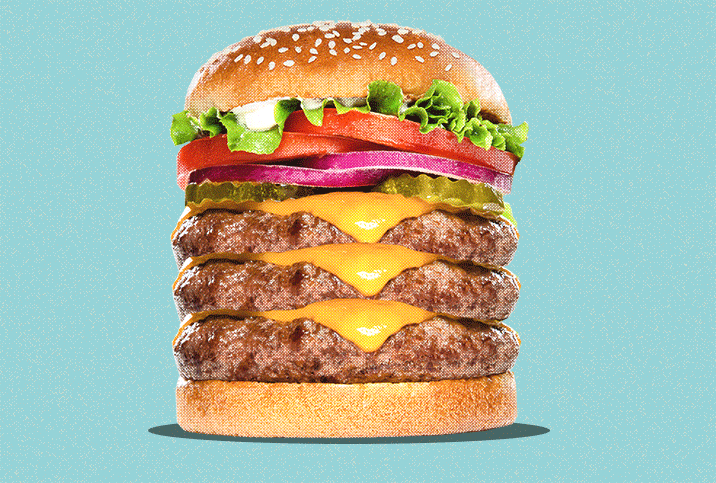
Despite the headlines you may have read warning about the dangers of eating red meat, these nutritionists agreed that it can be fine as part of a balanced diet.
"I feel confident recommending red meat to my clients as one part of an overall healthy diet that also includes whole grains, fruits, vegetables, low/reduced-fat dairy and healthy fats," Bell said. "If my clients like beef, I tell them to go ahead and enjoy fresh, lean cuts of it, along with a variety of other healthy foods, including fish/seafood and poultry."
A few cuts she recommends are those with "loin" or "round" in their names—sirloin, tenderloin, top round, eye of round—and ground beef that is 93 percent lean or higher. And the less processed, the better. Bell tells her clients to limit processed and cured meats, such as sausage, hot dogs, salami, bacon, pepperoni and bologna. This is wise advice considering the World Health Organization has classified processed meat as a Group 1 carcinogen, meaning studies show that eating processed meat can cause colorectal cancer.
Mowrer noted that organic red meat may be a better option, too, because it provides higher levels of omega-3 fatty acids, which are beneficial for preventing inflammation.
She recommends 3 or 4 ounces of lean red meat once or twice a week, while Bell recommends up to 18 ounces per week.
Of course, preparation matters—there's no point in eating a chicken-fried lean cut of steak. A few serving ideas from Bell:
- A Mediterranean-inspired salad paired with sirloin steak and whole-wheat pita
- Grilled skewers of marinated tenderloin cubes, cherry tomatoes and squash
- A lean ground beef burger on a whole-wheat bun with lettuce, tomatoes, onions and avocado, with a tomato and cucumber salad on the side
Improving erections through diet and lifestyle
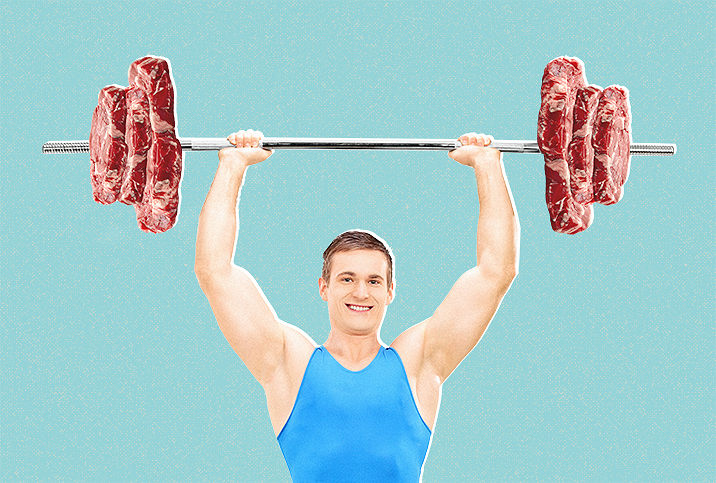
While there's no such thing as an edible erection panacea, there are a number of different foods that may increase your performance.
"Foods that are rich in antioxidants can increase the production of nitric oxide, which is essential for erectile function," Planells said. "Think beets, garlic, dark chocolate, dark leafy greens, citrus fruits, pomegranate, watermelon and red wine."
Mowrer highlighted berries, plums, nectarines and non-starchy vegetables, all known to boost blood flow and circulation.
And, remember, diet isn't the only way to improve ED.
"Make sure you are staying physically active, getting adequate sleep and that you are mentally doing well," Planells advised.
Up to the challenge
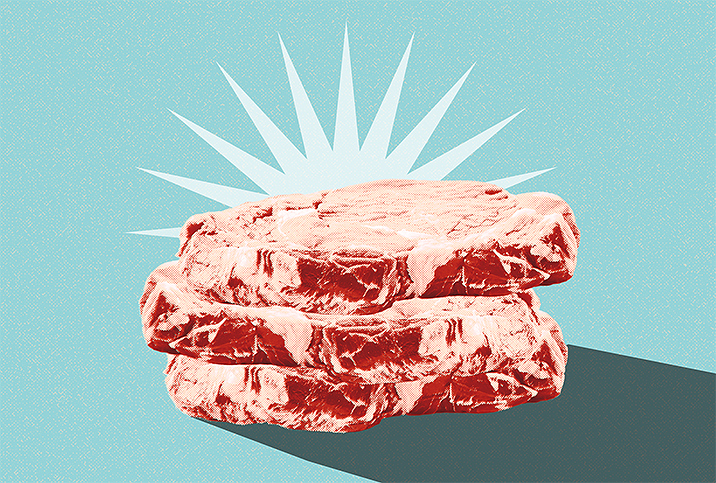
If you have a soft spot for fatty red meats, processed foods, sweets and junk food, you might not be thrilled to hear that they aren't doing your erections any favors. But, really, this is good news.
"It's uplifting to know that there may be some things you can do to mitigate your risk for ED—you have the power to change your diet and exercise habits," Bell said. "If a healthy heart and a lower cancer risk aren't enough motivation for you to improve your dietary habits, maybe the chance for better erections will be."













